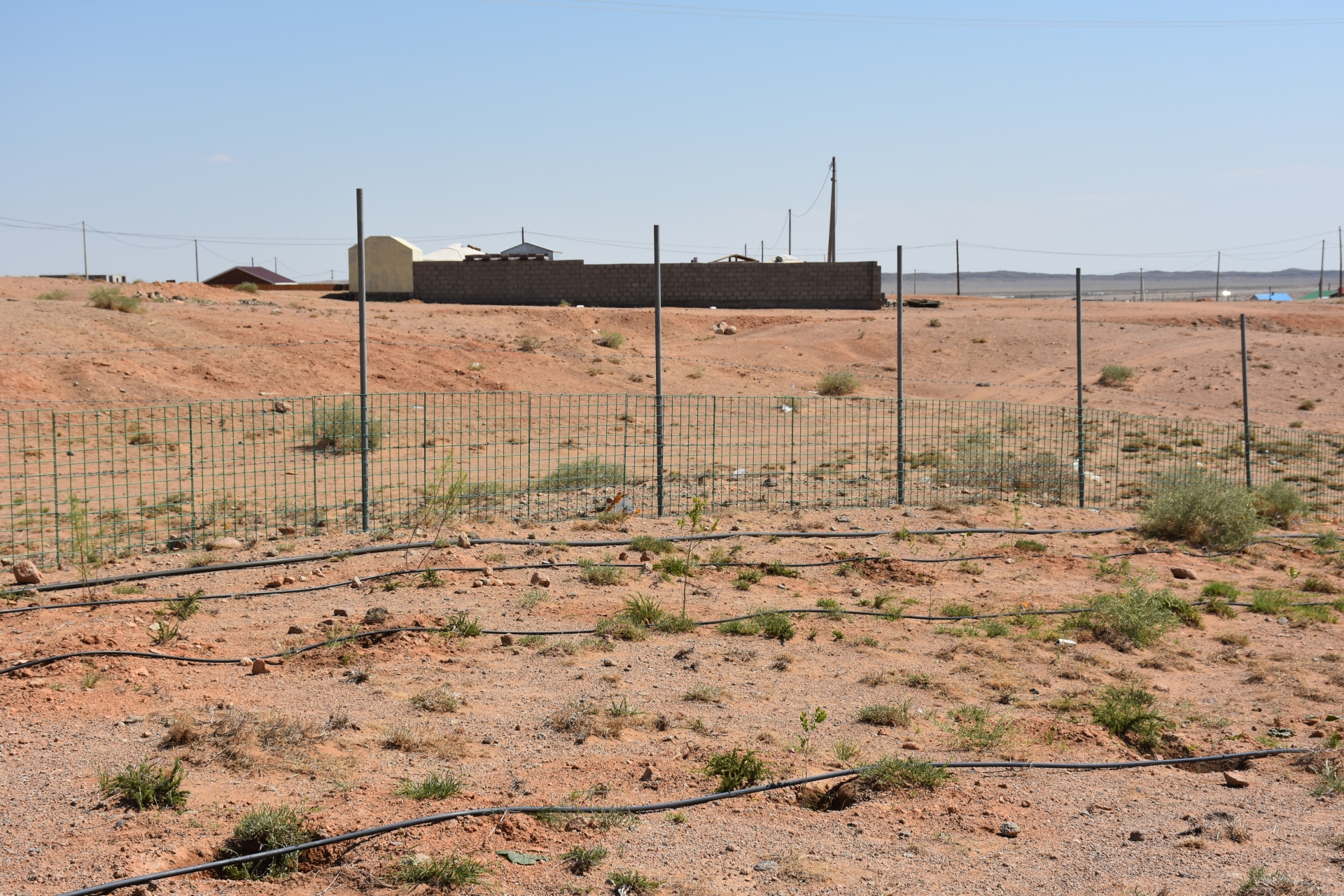PRESERVING SHAR TSAV, KHURDET CAVE CURTURAL HERITAGE BY PROMOTING TOURISM
Two sightseeing site were registered but not reserved under protection: - Over 18.000 footsteps with length of 6-70 cm of 4-5 species of dinosaurs were allocated in the area called Shar Tsav of Uguumur bag territory of Manlai soum, Umnugobi aimag (108 km south from Manlai soum) - 32 groups of Chinese, Mongolian, Tibetan scriptures of early period of XVIII-XX century found in Khurdet cave, 18 km west of Javkhlant bag of Khanbogd soum. The project aims to organize protection of the above cultural heritage, prevent from weather influence and improper actions of people and convert the place into one of the sightseeing sites attracting interests of foreign and domestic tourists and travelers. Fortified and preserved 4-5 types of 18,000 dinosaur tracks in Uguumur bagh, Manlai soum and placed information board and fortified cave inspection in Javkhlant bagh, Khanbogd soum
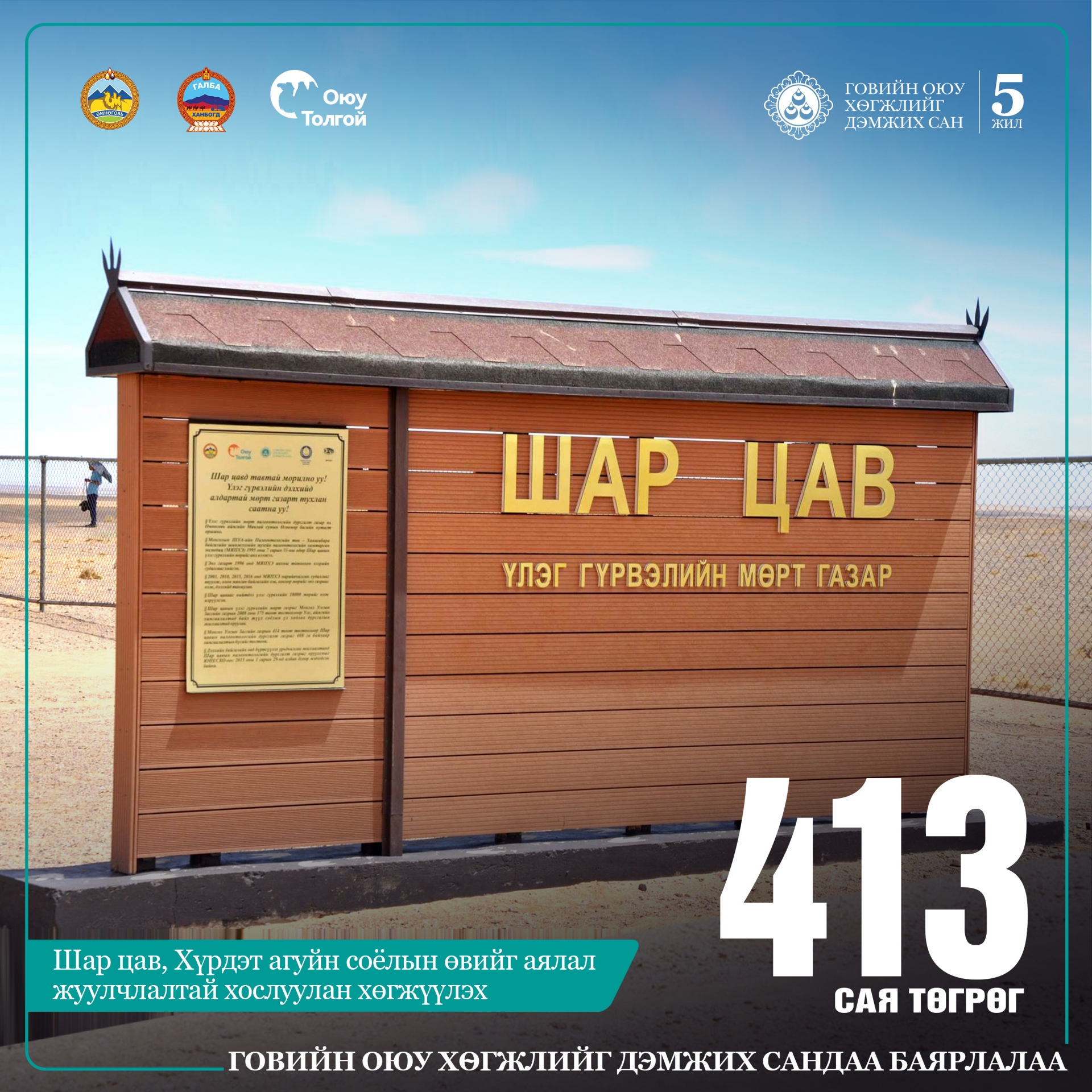
DISINFECTION-2016
By end of 2015, the Umnugobi province registered 2.055.767 heads of livestock in 51 bags of 15 soums. 1580 citizens own livestock, 5417 herder families have 4798 livestock cotes, including 4617 which are currently in use. There are 4632 water points throughout the aimag. 70 80 percent of all livestock are infected with parasites which is the main reason of loss annually. Disinfected 4987 spring and winter camps of 15 soums of 5417 Umnugobi province household and improved livestock efficiency and influenced positively on food safety.
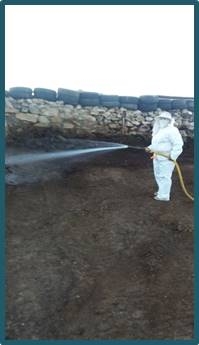
HEALTHY HERDER
38% of Khanbogd soum population is herders and over 40% of all households have livestock. 7 of 10 herders participated in the health and hygiene survey of Khanbogd, Bayan-Ovoo, Dalanzadgad, Manlai soums responded during the survey that they couldn’t receive medical service and treated themselves when they got ill, 20% of all herders responded that as they live in remote areas they couldn’t get medical treatment. Procured 21 types of 31 mobile hospital equipment, provided user guideline training to 25 specialists

TRAINING
There are few organizations to help citizens, youth and workers of Umnugobi province to sustainably develop themselves and continue their education. The program is based on the needs of Umnugobi province youth to improve their knowledge and skills, organize trainings and seminars to support personal development due to lack of possibilities and resources. Reached out to 345 youth of Umnugobi province and increased community knowledge about communication, leadership and time management and provided training within 12 subjects.
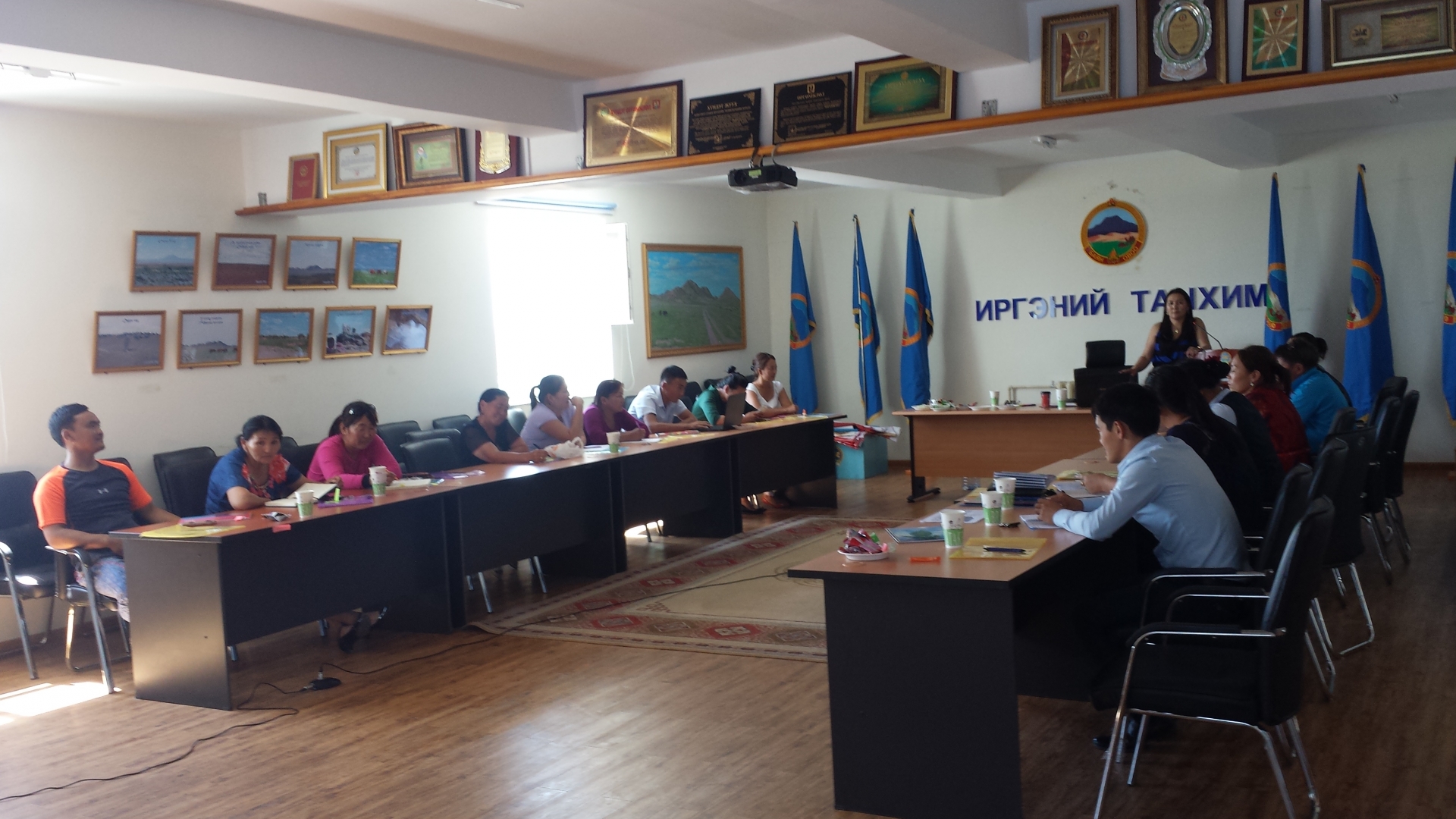
URBAN CULTURE
Dalanzadgad soum is rapidly developing with new constructions and landscaping. It turns into urban area however due to lack of mentality to respect each other, appreciate and protect other’s work, keep the environment clean, there is a need to make citizens to understand that city scape is inseparable from human actions. Disseminated information to 18000 Dalanzadgad soum community members and changed their attitude and consciousness.
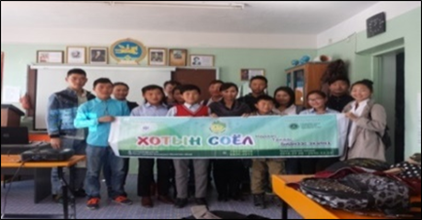
MANLAI GOBI GROVE
Manlai soum suffered from sand movement, climate change and desertification for last years; depletion of water resources along with reduction of biology diversification which led to the environmental imbalance. All these required to actively plant trees in order to reduce and fight desertification and sand movement. Planted 2600 trees in Manlai soum as plotted by the soum
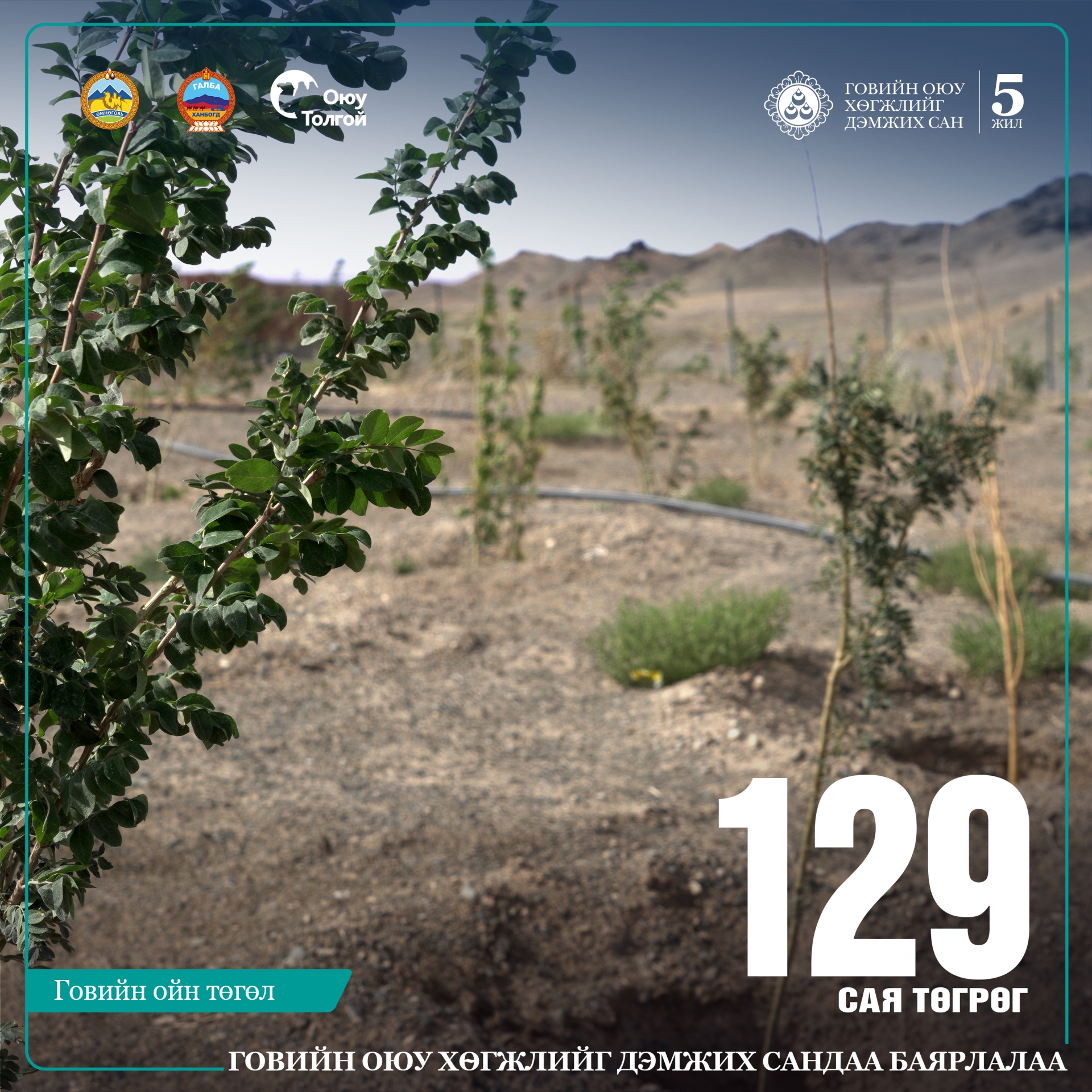
OYU GREENHOUSE
In 2015, 15 soums of Umnugobi aimag are engaged in greenhouse business with 145 greenhouses with total of 13340 m2. Over 1400 tons of potatoes and vegetable were grown and harvested from 162.8 hectares of land which supplied only 35-40 per cent of total potato and vegetable demand of the population. The harvest from greenhouses doesn’t exceed the family needs, therefore there is a great demand to increase the protected soil planting and to supply the local communities with quality vegetables. Provided greenhouses to Umnugobi province community with discount price from 2016-2026
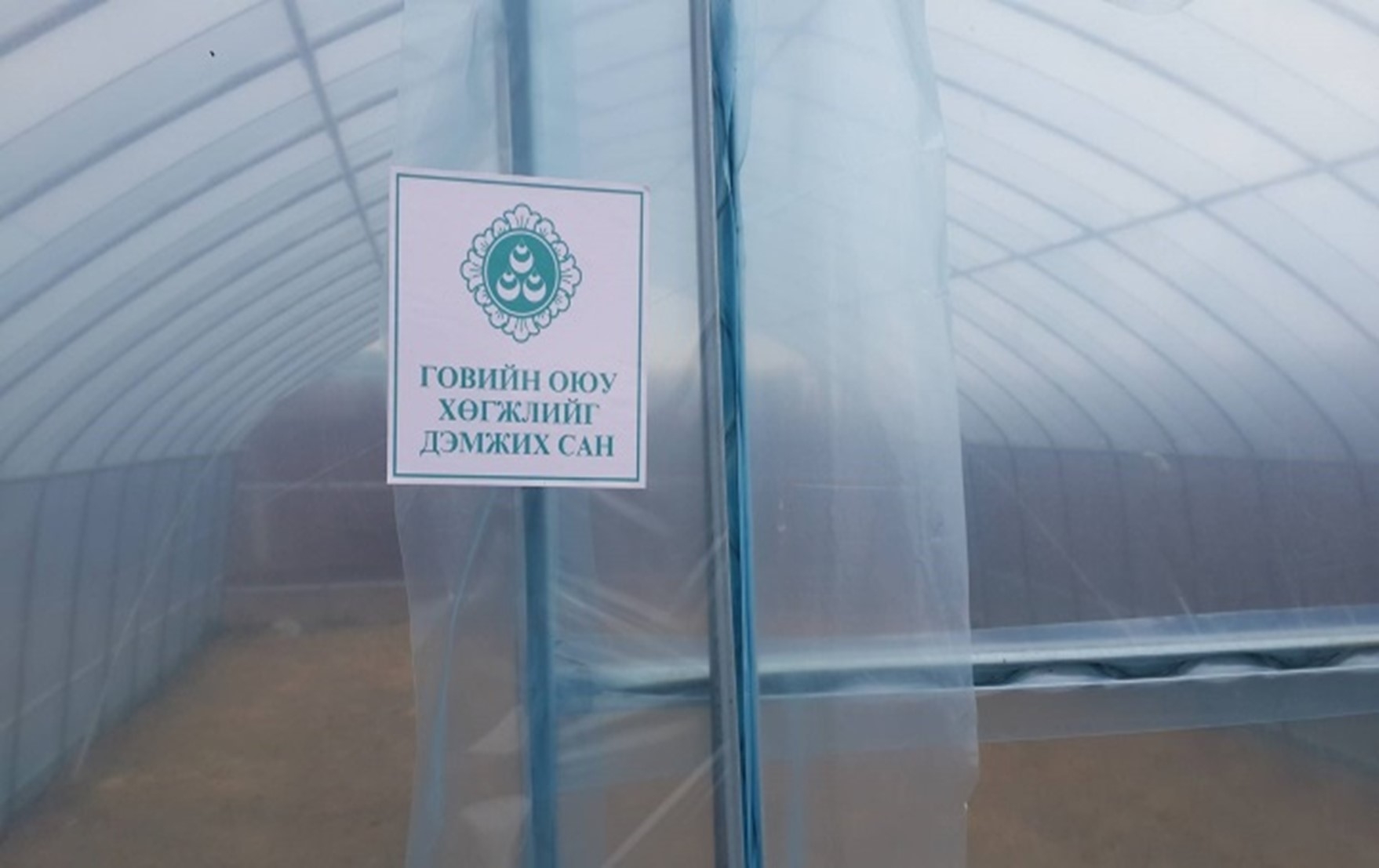
KHANBOGD SOUM TREE NURSERY PLANT
Due to climate change and wrongful human activities, soil erosion is increased, water resource and bio diversity are decreasing and the frequency of natural disaster is increasing thus this is adversely affecting Khanbogd soum environment. In order to decrease the negative impact, the priority is to plant trees in Khanbogd soum. Planted 10,000 broad-leaved trees in Khanbogd soum as plotted by the soum
